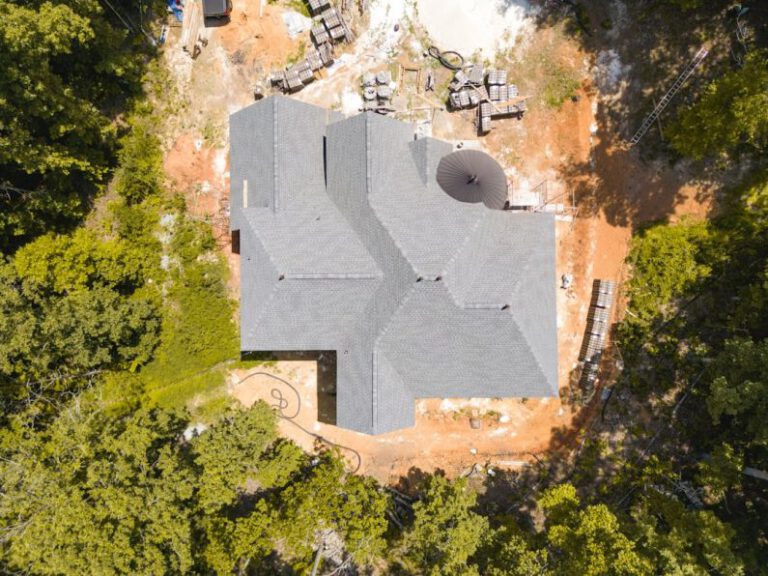How Are Startups Disrupting the Construction Industry?
The Construction Industry is Getting a Facelift Thanks to Startups
In recent years, startups have been shaking up the construction industry with innovative technologies and disruptive business models. These new players are challenging traditional practices and revolutionizing the way buildings are designed, constructed, and maintained. By leveraging cutting-edge technologies such as artificial intelligence, 3D printing, and virtual reality, startups are streamlining processes, reducing costs, and improving efficiency in an industry that has long been viewed as slow to adopt change.
Revolutionizing Project Management
One of the key ways startups are disrupting the construction industry is through the use of advanced project management tools. Traditional project management methods often involve cumbersome paperwork, manual data entry, and fragmented communication channels. Startups are introducing cloud-based project management platforms that centralize all project data, streamline communication between stakeholders, and provide real-time updates on project progress. By digitizing workflows and automating tasks, these platforms are enhancing collaboration, reducing errors, and speeding up project delivery times.
Enhancing Safety with Wearable Technology
Safety is a top priority in the construction industry, and startups are leveraging wearable technology to improve on-site safety measures. Wearable devices such as smart helmets, vests, and wristbands are equipped with sensors that can detect potential hazards, monitor workers’ vital signs, and provide real-time alerts in case of emergencies. By collecting and analyzing data on worker movements and environmental conditions, these devices help prevent accidents, reduce risks, and ensure compliance with safety regulations. Startups are also developing augmented reality (AR) safety training solutions that simulate hazardous scenarios and provide interactive training modules to educate workers on best safety practices.
Innovating Building Materials and Techniques
Startups are also driving innovation in building materials and construction techniques to make buildings more sustainable, energy-efficient, and cost-effective. Advanced materials such as carbon fiber composites, self-healing concrete, and recycled plastics are being developed to improve the strength, durability, and environmental impact of structures. 3D printing technology is being used to construct buildings with greater precision and speed, reducing material waste and labor costs. Startups are also exploring modular construction techniques that allow for off-site fabrication of building components, leading to faster assembly on-site and minimizing disruption to local communities.
Transforming Design and Visualization
The rise of startups focused on design and visualization technologies is transforming the way architects, engineers, and construction professionals collaborate on building projects. Virtual reality (VR) and augmented reality (AR) tools are enabling stakeholders to immerse themselves in virtual environments, visualize designs in 3D, and identify potential design flaws before construction begins. Building Information Modeling (BIM) software is being used to create digital models that simulate the entire lifecycle of a building, from design and construction to operation and maintenance. By digitally prototyping buildings and simulating various scenarios, startups are helping stakeholders make informed decisions, optimize building performance, and reduce costs over the long term.
Creating Sustainable and Smart Buildings
Startups are at the forefront of the green building movement, developing technologies that enable the construction of sustainable and energy-efficient buildings. From solar panels and green roofs to smart HVAC systems and water-saving devices, startups are introducing innovative solutions to reduce the environmental footprint of buildings and lower operating costs. Building automation systems powered by artificial intelligence are being deployed to optimize energy usage, monitor building performance, and enhance occupant comfort. By integrating smart technologies into building design and construction, startups are creating more sustainable and resilient structures that meet the evolving needs of occupants and communities.
Innovating the Future of Construction
As startups continue to disrupt the construction industry with their fresh ideas and groundbreaking technologies, the future of building projects looks brighter than ever. By challenging traditional practices, embracing digital transformation, and prioritizing sustainability, startups are reshaping the way buildings are designed, constructed, and operated. With their innovative approach and entrepreneurial spirit, startups are driving positive change in an industry that is ripe for disruption. The construction industry is on the brink of a new era, thanks to the disruptive influence of startups that are redefining the art and science of building.






